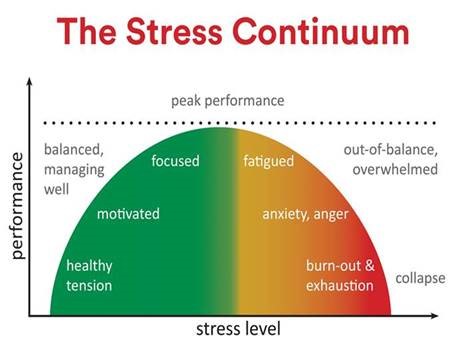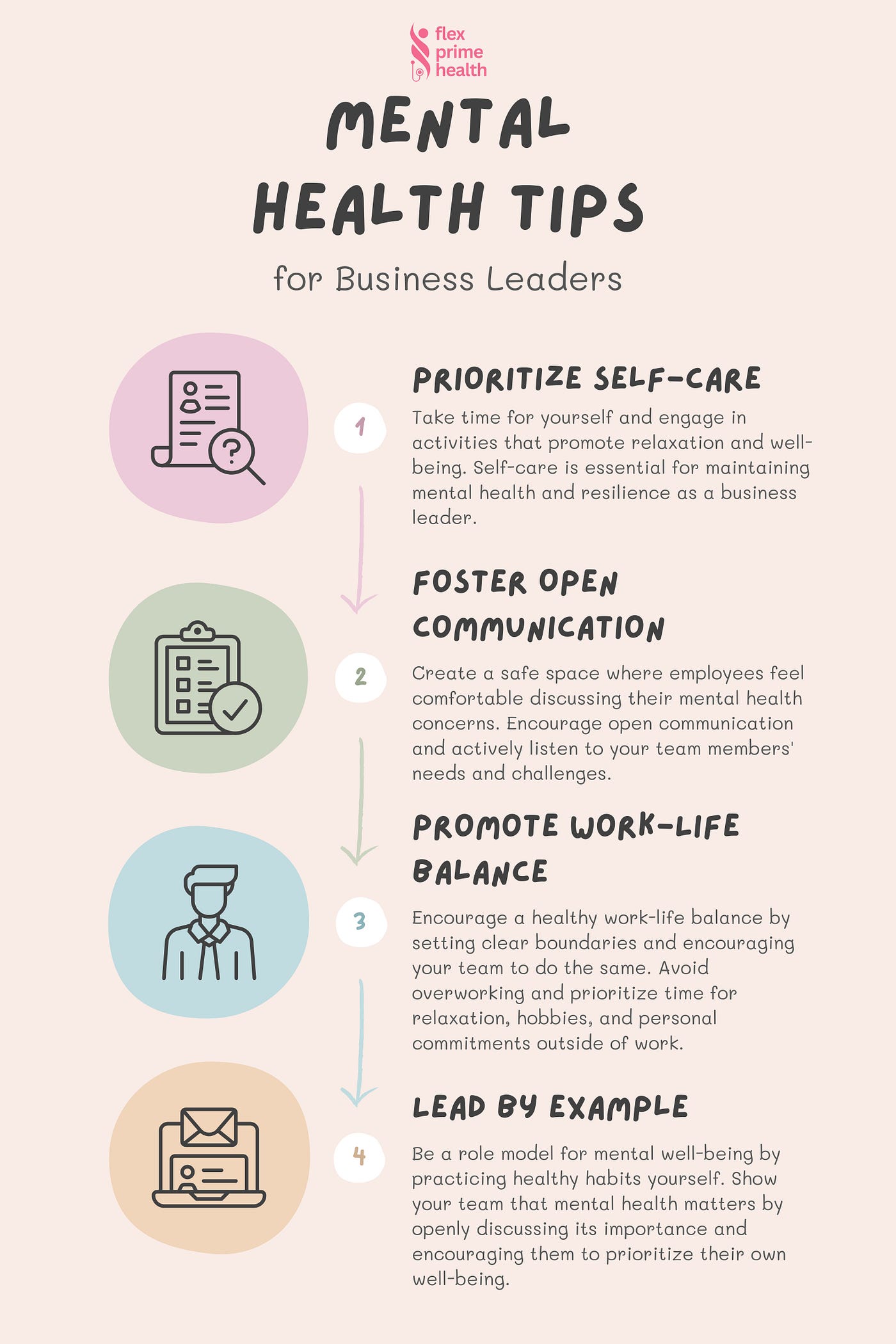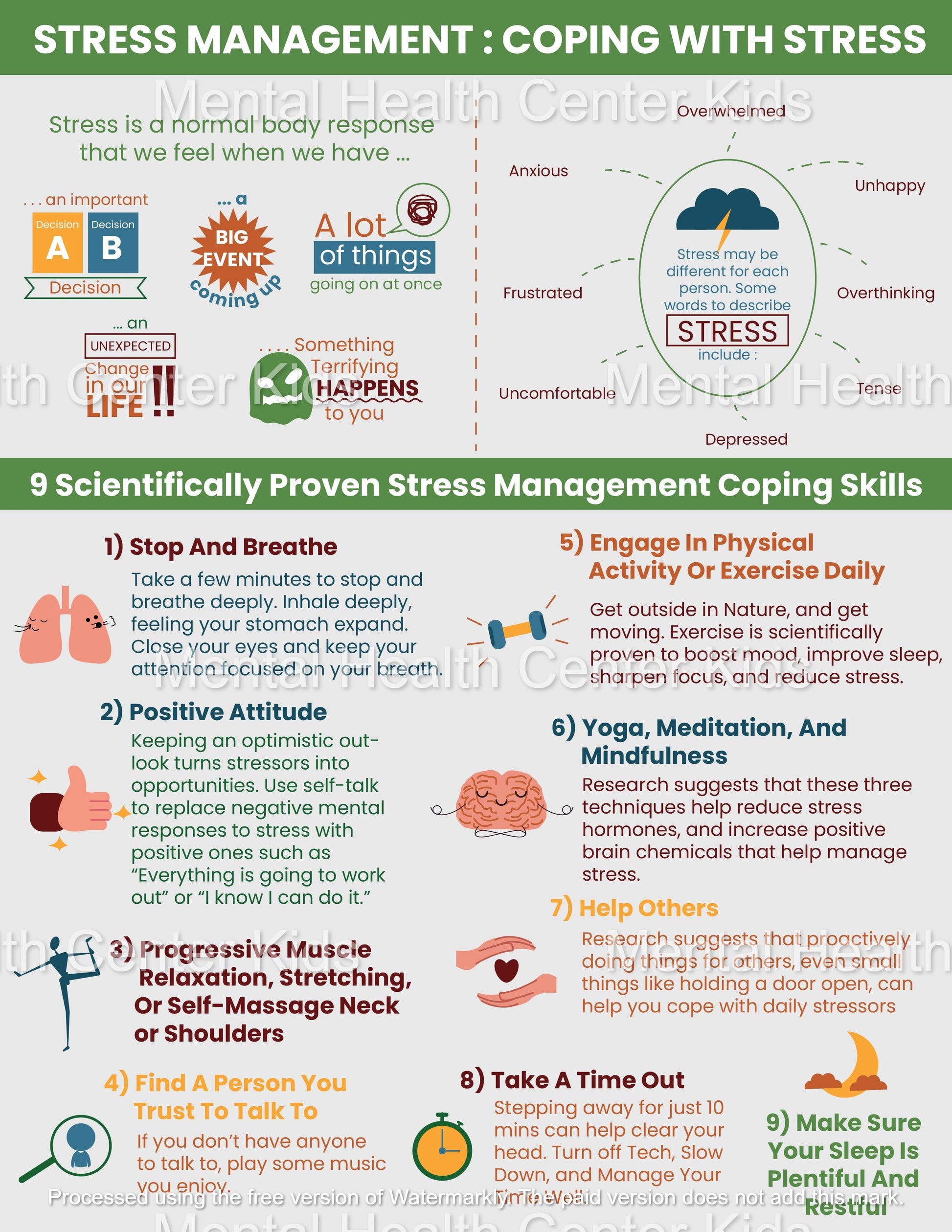Welcome to this blog post on stress management strategies for mental health matters. In today’s fast-paced world, it is essential to prioritize our mental well-being. Stress has become a common part of our lives, affecting both physical and mental health. This article aims to provide you with practical strategies to manage stress effectively. By making lifestyle changes, adopting cognitive strategies, and seeking social support, you can enhance your overall well-being. Remember, your mental health matters, and by implementing these strategies, you can prioritize self-care and achieve a more balanced and fulfilling life.
Understanding Stress and Its Impact

Stress is a natural response to challenging situations, but when it becomes chronic, it can have a negative impact on your mental and physical well-being. Stress can be caused by various factors, such as work pressure, financial difficulties, or relationship problems. It not only affects your mood and energy levels but can also lead to health issues like anxiety, depression, and high blood pressure. Recognizing the signs and symptoms of stress is crucial in order to take proactive steps to manage it effectively.
Definition and Causes of Stress
Stress can be defined as the body’s response to demands or pressures that exceed our ability to cope. It is a natural reaction that can arise from various sources, including work stress, financial difficulties, relationship problems, or major life changes. These triggers can vary from person to person, as each individual has different stressors. By identifying the specific causes of stress in your life, you can take steps to manage and reduce their impact. Remember, acknowledging and understanding the causes of stress is the first step towards effective stress management.
Physical and Mental Effects of Stress

Stress can have a significant impact on both your physical and mental well-being. Physically, stress can manifest as headaches, muscle tension, digestive issues, and increased heart rate. It can also weaken the immune system, making you more susceptible to illnesses. Mentally, stress can lead to feelings of anxiety, depression, and difficulty concentrating. It can also disrupt sleep patterns, leaving you tired and irritable. Recognizing these effects is crucial in understanding the importance of managing stress and implementing effective strategies to improve your overall well-being.
Lifestyle Changes for Stress Management
To effectively manage stress, making lifestyle changes is essential. Incorporating regular exercise and adopting a healthy eating plan can help reduce stress levels. Physical activity releases endorphins, which boost mood and reduce stress. Consuming a balanced diet with plenty of fruits, vegetables, and whole grains provides essential nutrients to support your body’s stress response. Additionally, prioritizing adequate sleep and practicing relaxation techniques such as deep breathing or yoga can help calm the mind and promote relaxation. Making these lifestyle changes will enhance your overall well-being and resilience to stress.
Importance of Exercise and Healthy Eating
Regular exercise and a healthy eating plan are crucial for managing stress. Engaging in physical activity releases endorphins, which are natural mood boosters and stress relievers. It also improves overall well-being and promotes better sleep. Pairing exercise with a balanced diet, rich in fruits, vegetables, and whole grains, provides the necessary nutrients to support the body’s stress response. This combination promotes optimal physical and mental health, enhances resilience to stress, and helps you maintain a positive mindset. So prioritize exercise and healthy eating for effective stress management.
Benefits of Adequate Sleep and Relaxation Techniques

Getting enough sleep is essential for stress management and overall mental health. When you prioritize a good night’s rest, you give your body and mind the opportunity to rejuvenate and heal. Quality sleep improves cognitive function and concentration, allowing you to better handle stressors throughout the day. Incorporating relaxation techniques such as deep breathing, meditation, or yoga into your routine can also help reduce stress levels and promote a sense of calm. So, make sure to create a peaceful sleep environment and dedicate time for relaxation techniques to experience these benefits.
Cognitive Strategies to Combat Stress

When it comes to managing stress, cognitive strategies can be highly effective. Mindfulness and meditation practices help to quiet the mind and bring focus to the present moment, reducing anxiety and stress. Cognitive Behavioral Therapy (CBT) techniques can also be beneficial, as they help identify and challenge negative thought patterns that contribute to stress. By replacing these thoughts with more positive and realistic ones, you can better manage stress and improve your overall mental well-being. Incorporating these cognitive strategies into your daily routine can lead to a more calm and resilient mindset.
Mindfulness and Meditation Practices

Mindfulness and meditation practices are powerful tools for combatting stress. By bringing your focus to the present moment and quieting the mind, you can reduce anxiety and find inner peace. Incorporating these practices into your daily routine can help you cultivate a greater sense of calm and resilience. Start by setting aside a few minutes each day to sit quietly and observe your breath. Gradually increase the duration as you become more comfortable. You can also explore guided meditation apps or classes to deepen your practice. Regular mindfulness and meditation can significantly improve your mental well-being and help you manage stress more effectively.
Cognitive Behavioral Therapy Techniques

To effectively manage stress, try incorporating cognitive behavioral therapy (CBT) techniques into your daily routine. CBT focuses on identifying and changing negative thought patterns and behaviors that contribute to stress. Start by paying attention to your thoughts and challenging any negative or distorted thinking. Replace these thoughts with more realistic and positive ones. Additionally, practice relaxation techniques such as deep breathing or progressive muscle relaxation to reduce physical symptoms of stress. By using CBT techniques, you can gain a better understanding of your stress triggers and develop healthier coping mechanisms.
Social Support and Communication
Building strong relationships and support networks is crucial for managing stress. Surrounding yourself with people who provide emotional support can help you navigate difficult times. Reach out to friends, family, or support groups who understand and validate your feelings. Openly express your thoughts and concerns to trusted individuals, as effective communication can alleviate stress. Engaging in meaningful conversations and seeking advice from others can offer different perspectives and solutions. Remember, you are not alone, and seeking social support is a sign of strength and resilience.
Building Strong Relationships and Support Networks

When it comes to managing stress, building strong relationships and support networks is essential. Surround yourself with people who provide emotional support and understanding during difficult times. Reach out to friends, family, or support groups who can validate your feelings and offer guidance. Openly express your thoughts and concerns to trusted individuals, as effective communication can alleviate stress. Engaging in meaningful conversations and seeking advice from others can offer different perspectives and solutions. Remember, you are not alone, and seeking social support is a sign of strength and resilience.
Effective Communication Skills for Stress Relief

When it comes to managing stress, effective communication skills can greatly contribute to your overall well-being. By expressing your thoughts and concerns to others, you can relieve the burden of stress. Practice active listening and empathy when engaging in conversations, allowing the other person to feel heard and understood. Use open and honest communication to address conflicts and resolve issues, reducing stress in relationships. Remember to be assertive, expressing your needs and boundaries clearly. Developing these communication skills can lead to healthier and more supportive relationships, contributing to stress relief.
Professional Help and Resources
If you find that your stress is becoming overwhelming and difficult to manage on your own, it may be beneficial to seek professional help. Therapists and counselors are trained to provide guidance and support for individuals dealing with stress and mental health issues. They can offer valuable insights and strategies to help you cope with and reduce stress. Additionally, mental health hotlines and online support groups can provide a safe space for you to connect with others who may be experiencing similar challenges. Remember, reaching out for help is a sign of strength and prioritizing your mental health.
Seeking Therapy and Counseling Services
If you find that your stress is becoming overwhelming and difficult to manage on your own, seeking therapy and counseling services can be a valuable option. Therapists and counselors are trained professionals who can provide guidance and support tailored to your specific needs. Through therapy, you can gain insight into the underlying causes of your stress and develop effective coping strategies. They can also help you explore any underlying mental health conditions that may be contributing to your stress. Remember, reaching out for professional help is a positive step towards prioritizing your mental health.
Utilizing Mental Health Hotlines and Online Support Groups
When managing stress, it can be helpful to reach out to mental health hotlines and online support groups for additional support. Mental health hotlines provide immediate access to trained professionals who can offer guidance and assistance during times of crisis. Online support groups offer a platform for connecting with others who may be experiencing similar challenges, allowing for shared experiences and advice. These resources can provide a sense of community, validation, and encouragement, reminding you that you’re not alone in your struggles. Remember to utilize these resources when needed and take comfort in knowing that help is just a phone call or click away.
Conclusion of Mental Health Matters
In conclusion, prioritizing your mental health is crucial for managing stress effectively. By implementing lifestyle changes such as exercise, healthy eating, and adequate sleep, you can boost your overall well-being. Cognitive strategies like mindfulness and cognitive behavioral therapy can help shift your mindset and reduce stress levels. Building strong relationships and practicing effective communication skills provide essential social support. Remember that seeking professional help and utilizing mental health resources like therapy services, hotlines, and online support groups can provide additional support when needed. Take control of your mental health and lead a balanced, stress-free life.
Recap of Stress Management Strategies
To recap, managing stress requires a multi-faceted approach. Start by making lifestyle changes such as engaging in regular exercise and eating a healthy diet. Prioritize getting enough sleep and incorporate relaxation techniques into your routine. Practice mindfulness and meditation to calm your mind and improve your ability to handle stress. Cognitive behavioral therapy techniques can help you reframe negative thoughts and manage stress more effectively. Build strong relationships and communicate openly to enhance your social support network. Remember, prioritizing your mental health is essential for long-term stress management.
Encouragement for Prioritizing Mental Health

Take the time to prioritize your mental health. Your well-being matters, and managing stress is essential for a healthy and fulfilling life. By implementing these stress management strategies, you are taking a proactive step towards a happier and healthier you. Remember, self-care is not selfish; it is necessary. Seek support from friends, family, or professionals when needed. Put yourself first and make your mental health a priority. You deserve it.
For More Blogs visit Aerns

